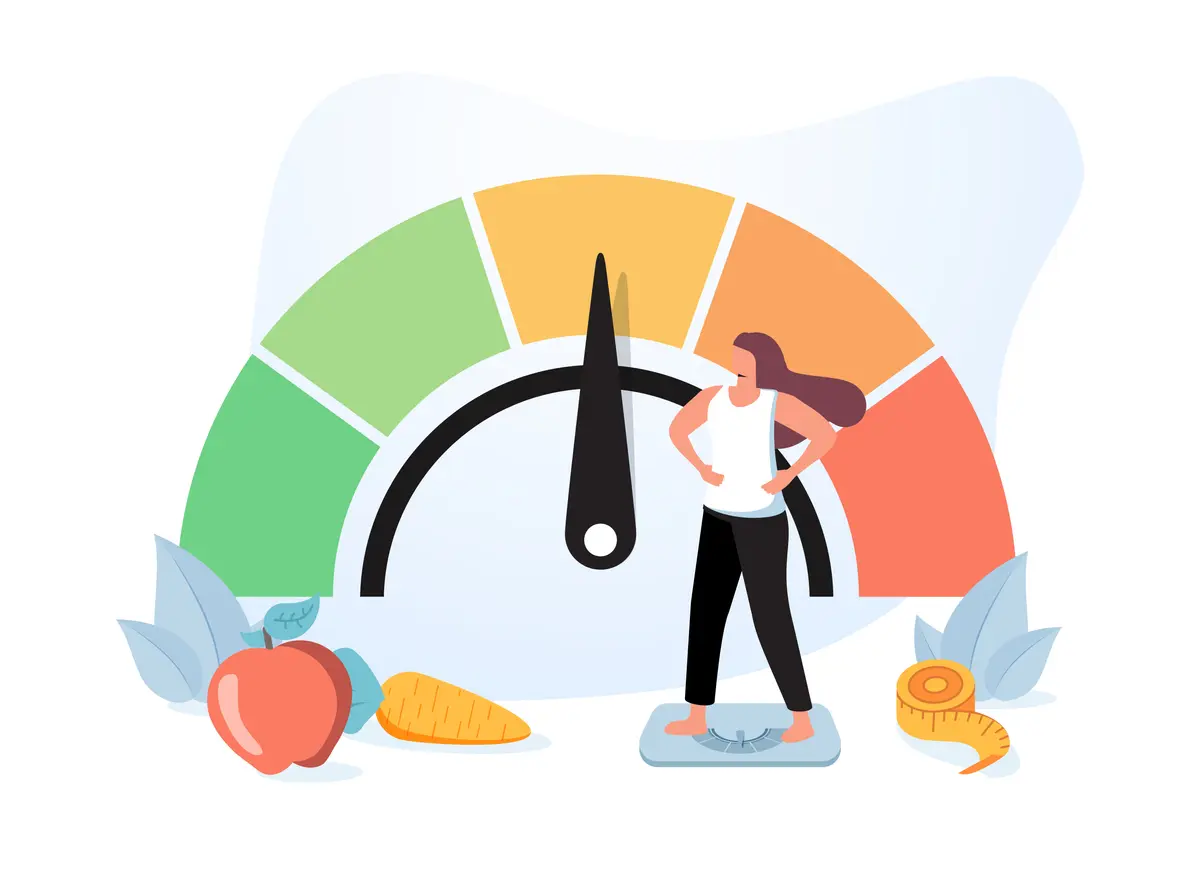Five Simple Tips For A Healthy BMI
Staying at a healthy body mass index (BMI) reduces the risks associated with obesity. To achieve this goal, here are five easy steps to follow:
Trying to figure out what an ideal weight is for you can be tricky, but luckily, there is a simple way to assess your overall health – calculating your Body Mass Index (BMI). BMI is a widely accepted measure of health and indicates whether someone is underweight, a healthy weight, overweight or obese.
Although BMI does not consider your muscle mass or the distribution of your fat, it is still an effective way to determine whether you are in a generally healthy weight range.
Benefits Of A Healthy BMI
- Complications of COVID-19 are reduced
- Type 2 diabetes risk is reduced
- Heart attacks and cardiovascular disease are reduced
- Self-confidence and better mobility
- Muscle and joint pain is reduced
- Fertility improvement
How To Lower Your BMI
You can start making simple changes towards a healthier lifestyle to improve your BMI. Here are some tips to get started: increase your physical activity, reduce your intake of processed foods, and focus on eating more nutrient-dense foods.
1. Don’t Bother With Crash Diets
People often attempt to lose weight rapidly by putting themselves on a strict diet before a special occasion. Additionally, people usually follow various diet fads, jumping from one to the next.
These diets are not a lasting solution and do not offer the best way to maintain a healthy BMI. Although you may experience rapid weight loss, making such drastic changes to your diet is not a viable option for the long term.
If you want to maintain a healthy BMI, following a balanced, calorie-controlled diet is essential. This can be done by making healthier choices, reducing portion sizes, and avoiding high-calorie food and beverages. Doing so will make you more likely to achieve and maintain a healthy BMI.
2. Look Out For Hidden Sugar
According to government guidelines, adults should limit their daily sugar intake to 30g (approximately seven sugar cubes). In comparison, children aged 7 to 10 should consume 24g (6 sugar cubes), and those aged 4 to 6 should consume 19g (5 sugar cubes) of free sugars.
Overeating sugar can make it hard to maintain a healthy weight. Many of us avoid sugary snacks and drinks to lose weight – but sugar is often hidden in unexpected foods. Therefore, it is essential to be aware of the hidden sugar content of foods when trying to reduce sugar consumption.
Examples include:
- Coleslaw
- Tinned fruit in syrup
- Pasta sauces
- Shop-bought soups
- Granola and cereal bars
- Ketchup
- Salad dressings
When grocery shopping, check the sugar content in pre-packaged foods for a few extra moments. Don't just focus on the obvious suspects like cake and chocolate - think about the hidden sources of sugar, too. By doing this, you'll be able to reduce your intake of sugar and make healthier choices.
3. Get Your Heart Pumping
Engaging in physical activity can help individuals achieve and maintain a healthy weight. Its recommended to do at least 150 minutes of moderate-intensity exercise, such as brisk walking, hiking, or cycling per week. Individuals should also engage in 75 minutes of vigorous exercise, including running, swimming, or aerobics. Mixing cardio and strength training to develop critical muscles and achieve better weight loss results is essential.
Among the activities with a high intensity are:
- Running or jogging
- Fast swimming
- Gymnastics
- Martial arts
- Playing sports like football, rugby and netball
- Cycling fast or uphill
- Using a skipping rope
Don't let the colder temperatures keep you from enjoying the great outdoors! Exercising outside during winter has many benefits, such as improved immunity and a faster metabolism. You don't need to invest in a gym membership to reap these rewards!
4. Move More
Finding time for exercise can be difficult when balancing work and family commitments. If you don't have the time or energy to commit to a rigid workout routine, adding more movement to your day can help you burn calories and get healthier. Incorporate small exercises into your day, such as walking during your lunch break or taking the stairs instead of the elevator.
Consider walking or cycling to work and opt for the stairs instead of the elevator. Not only are these choices beneficial to your health and BMI, but they are also consistent with current social distancing guidelines.
You can still track how much you move daily if you don't have a step tracker. Make an effort to get out and walk 10,000 steps daily, even if you're doing chores or running errands. This can make a big difference in your overall health and well-being.
Using a BMI calculator to achieve a healthy weight would be best. This calculator can provide you with an indication of where you stand on the BMI scale, as well as offer advice on how to manage your weight.
5. Get The Proper Support
Taking part in a group weight loss programme, gym support groups or classes, or joining a social media community with similar goals can be a helpful way to reach a healthy BMI. Being part of a group striving for the same goal can motivate and encourage. Working together and sharing successes can keep you on track and make the process easier.
Showing your support to those who need it can make a huge difference in their journey to health. Whether it's a friend, family member, or partner, taking the time to encourage and motivate them can do more than inspire them. Consider going on a health journey together, cooking nutritious meals that everyone in the household can enjoy, and checking in with each other regularly. These small lifestyle changes can pave the way for a healthier and happier lifestyle.
Connect with one of our doctors at Mobi Doctor with the click of a button and receive the care you require.






